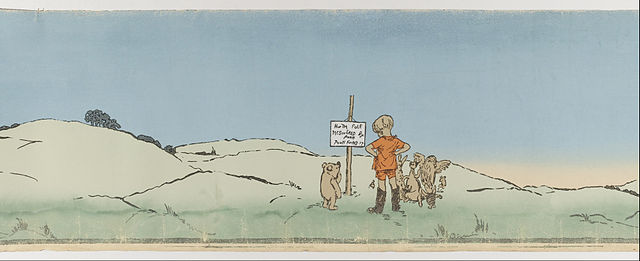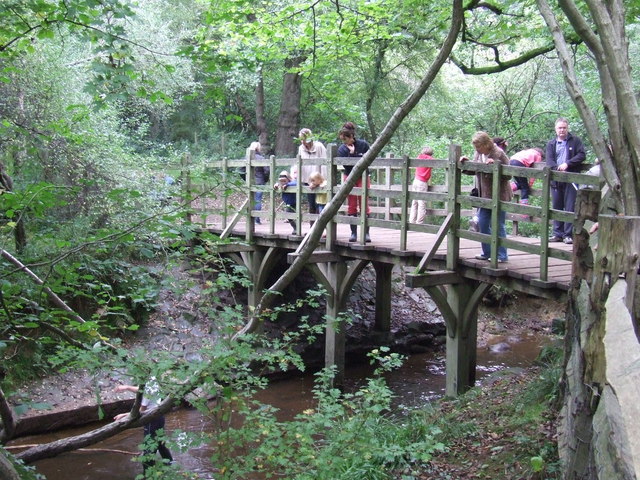-
3-minute read
-
18th January 2019
A Bear of Very Many Words: Winnie-the-Pooh in the Dictionary
Did you know that today, January 18, was A. A. Milne’s birthday? To mark this, people around the world are celebrating Milne’s much-loved creation, Winnie-the-Pooh. And for Winnie-the-Pooh Day this year, we thought we’d take a quick look at the language of Pooh.

But what can a bear of very little brain offer the English language? More than you might expect! In fact, if we look at the Oxford English Dictionary, Pooh and his friends pop up a few times…
1. Pooh-Sticks
Perhaps the most obvious bit of Pooh in the dictionary comes with pooh-sticks. This is the game that Winnie-the-Pooh and his friends play by dropping sticks into a river on the upstream side of a bridge. The contestants then rush to the other side to see whose stick emerges first.
This might not sound like a competitive sport, but the World Poohsticks Championships have been taking place in England for 35 years now!

(Photo: Malc McDonald)
2. Eeyore and Tigger
Among Pooh’s friends in the Hundred Acre Wood, Eeyore and Tigger stand out for their contributions to the English language. Eeyore, the downbeat donkey, appears in the OED as a term for a “pessimistic, gloomy, or habitually disconsolate person” (or you can use the adjective “Eeyore-like,” if you prefer).
A Tigger, on the other hand, is defined as an “exuberant, energetic, and cheerful person.” The famously bouncy tiger has also inspired two adjectives: Tiggerish and Tigger-like. It seems, then, that Winnie-the-Pooh offers terms for people of very different temperaments!
Find this useful?
Subscribe to our newsletter and get writing tips from our editors straight to your inbox.
Subscribe to Beyond the Margins and get your monthly fix of editorial strategy, workflow tips, and real-world examples from content leaders.
3. Heffalumps and Woozles
In A. A. Milne’s writing, heffalumps and woozles are (possibly imaginary) creatures that steal honey. And since Winnie-the-Pooh is really, truly very fond of honey, he has to be wary of these sneaky beasts!
The words “heffalump” and “woozle,” and the creatures’ appearances, are based on the English words “elephant” and “weasel,” respectively. But outside of Milne’s writing, heffalump has become a playful word for real-life elephants (or sometimes, less politely, larger human beings).
Sadly, the word “woozle” hasn’t yet made it into the dictionary. However, it has inspired the term “woozle effect.” This is based on the story of Pooh and Piglet mistaking their own footprints for those of a woozle, then chasing themselves in circles in a hunt for something that doesn’t exist.
In the real world, the “woozle effect” occurs when a misleading or unsubstantiated idea is repeated and republished often enough that people start believing it (or chasing their own footprints, so to speak). So while “woozle” isn’t in the dictionary yet, it still might appear there one day!




